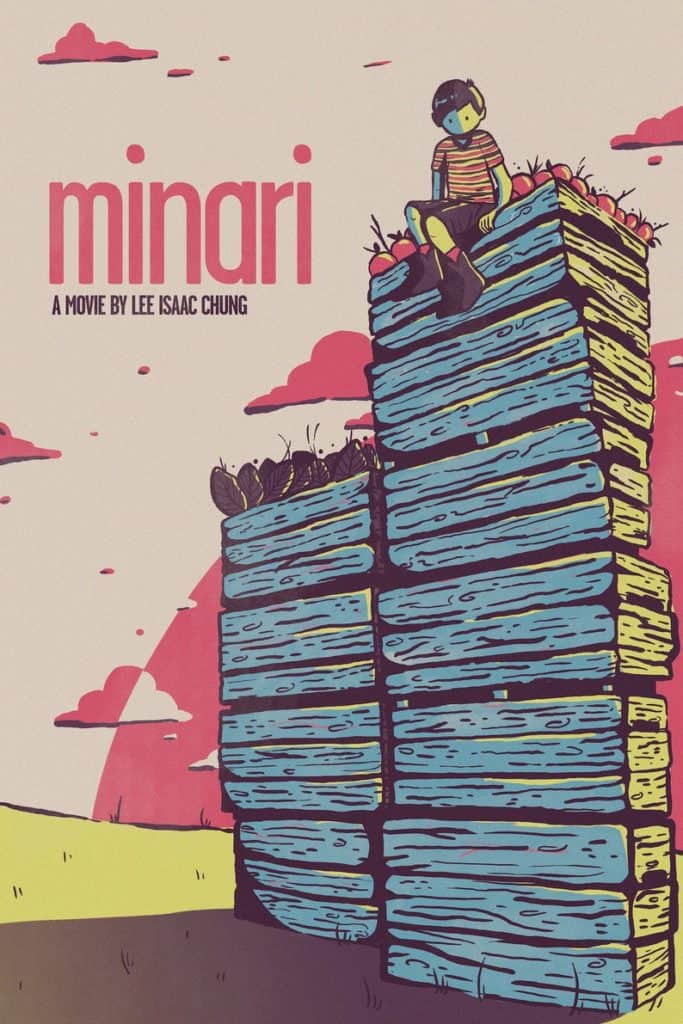
February really kicks 2021 into high gear with an incredible slate of film score releases. In fact, there were far too many great scores for me to cover! There’s a wide variety of genres and styles, from the touchingly intimate work of Emile Mosseri on Minari to the stylistic melting pot of Bliss by Will Bates and much more. If you think I’ve missed any scores from February, leave a comment or get in touch and I’ll check them out!
In fact, I’ve just released a long-form interview with Will Bates in which we talk about scoring Bliss (among many other things).
Have a quick read about each of these excellent scores below then be sure to give them a listen. Be sure to see what other scores you may have missed by reading past editions of this column.
Further, if you haven’t already then be sure to give a read (and a listen) to my rundown of my favorite scores of 2020.
Minari – Emile Mosseri
Despite only having three film scores under his belt, Emile Mosseri has firmly established himself as one of the best and most exciting young film composers working today. The highlight of his career to-date is arguably his Academy Award nominated score for Minari. In under 35 minutes, Mosseri creates one of the most poignant scores in recent years. A piano-driven hypnosis, whose gentle caress is both hopeful and melancholic. It’s the type of score to put on repeat, with each play lulling you further into a dream.
Bliss – Will Bates
My first listen to Will Bates’ Bliss left me utterly confused: how can a score cohesively jump genre every few tracks? It moves between heady sci-fi sounds, romantic optimism, lounging jazz, and the chaos of a crumbling reality. Bates’ melting pot of musical genres shouldn’t work, but it does. The eclectic mix follows the journey of Owen Wilson’s character and when set to screen it all clicks seamlessly. Bliss is an impressive feat that doubles as a demo reel for Bates’ genre mastery.
Raya and the Last Dragon – James Newton Howard
Raya and the Last Dragon is yet another example of how Disney films bring out the best in James Newton Howard. The score is a magical fantasy adventure that manages to balance an epic scope with more intimate, emotional moments. There are, appropriately, southeast Asian musical influences throughout. They’re handled with a delicate care, avoiding any possibility of pastiche or appropriation. What might turn off some listeners is the surprising amount of electronics. However, not only do they add interesting dimensions to the score, but they were likely a necessary substitute amidst the grips of Covid.
To Olivia – Debbie Wiseman
Debbie Wiseman manages one of the first great orchestral scores of 2021 with To Olivia. Her main theme is elegant and romantic, with hints of mourning and touches of magic and fantasy (reflecting the works of main character Roald Dahl). A gentler, sober piano motif follows, keeping the score grounded. Together, a hopefulness brews, cutting through the recurring solemnity and loss.
The Night – Nima Fakhrara
“Stingers” – the musical parallel to a jump scare – can sometimes feel like a cheap way to inflict fright. Unexpected bursts of sound are enough to make anyone jump, if as much out of fear as out of pure surprise. Although Nima Fakhrara’s score to The Night is full of them, each feels earned and is incredibly effective. Again and again my heart felt pushed to the limit as terror pumped through my veins, with just enough subdued moments in between for a slight breather. The ending track, aptly titled “The Suite,” adds some welcome musical diversity, with eerie noise and tortured wails rounding out the punishing stingers.
A Few More Scores
It’s hard to cover every single good score that’s released in a given month, so here are a few more very good February releases:
- Sister of the Groom – Jay Lifton
- Judas and the Black Messiah – Mark Isham and Craig Harris
- Willy’s Wonderland – Emoi
- The World to Come – Daniel Blumberg (Interview)
- Some Kind of Heaven – Ari Balouzian
- The Vigil – Michael Yezerski
- Night of the Kings – Olivier Alary
